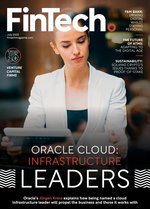Why have banks become so risk averse?

FinTech Magazine speaks to Cifas expert and Consultancy Regulatory Solicitor at Setfords, Jeremy Asher, about why banks have become so risk-averse.
What is the role of fraud in banks’ increased risk aversion?
Fraud accounts for 41% of reported crimes, yet the Police only investigate 2% due to budgetary constraints. As the UK government looks to make it an offence for large corporations to fail to prevent fraud, an over-reliance on automated processes and AI from saving costs could mean that more and more private individuals face the same kind of problems as Nigel Farage and other politicians when it comes to accessing services.
With Jeremy Hunt, Nigel Farage, the children of prominent political figures, and even businesses within the defence industry complaining that they have been denied new bank accounts, it is an opportune moment to discuss the wider issues and ramifications surrounding this important subject. There is a wider picture that has an adverse impact on ordinary people too.
How else are banks altering their approach as a result of rising fraud?
The government has proposed making it an offence for large corporations to fail to prevent fraud. The Economic Crime and Corporate Transparency Bill is currently going through the parliamentary processes to become law. The House of Lords has tabled amendments to it to capture all organisations, not just those with more than 250 employees, or a turnover of more than £36m (US$47.2m), or assets of more than £18 million (US$23.5m).
It is no wonder then that the banks are concerned, and are consequently taking a risk-averse approach to opening new accounts. They are also reviewing their arrangements with current customers. This is reflected in the way banks investigate all their customers, through the use of automated processes and AI. When such tools identify fraudulent activity on an account or through an application for finance, then the customer is at risk of their bank accounts being closed. They will also struggle to get new credit and banking facilities for six years. Customers in this position have their details loaded into databases such as Cifas.
In 2022, 409,000 people had their details recorded by Cifas, up from 360,000 in 2021. In the past six years, more than 2m Cifas markers have been loaded. In addition, it is likely that several hundred thousand markers have been loaded by National Hunter and Synectic Solutions. All such markers are used to alert the banking and finance industries where a customer is suspected of fraudulent conduct.
As previously mentioned, the Police now only investigate 2% of fraud cases – yet fraud accounts for 41% of reported crimes. The fraud databases are part of the toolkits used by the banks to police fraud and disrupt fraudulent activity and are at the front line in the fight against fraud.
Can you expand on the UK government’s role in this?
By threatening the banks with prosecution for failing to prevent fraud, the government is placing the economy at risk. If the banks will not provide facilities or lending, then the wider economic risk to the country is obvious. It is ironic that the most high-profile victims of this risk-averse system are the politicians themselves, and they are now experiencing the pain suffered by those who have had Cifas markers loaded against them, many of whom are innocent.
If recent reports are to be believed, banks are taking a literal and over-zealous approach to considering whether someone is a Politically Exposed Person (PEP), for example by not considering whether the PEP in question has business ties that are out of the ordinary. I see many banks and financial services companies also take a literal interpretation of automated decision-making processes.
As with the politicians and PEPs, there can be little if any wider investigation when it comes to loading Cifas and other fraud markers. Whilst most Cifas markers are correctly loaded, and they are an important feature of the country’s fight against fraud, many of those marked are innocent.
The bank's processes and systems are flawed, as is evidenced by figures reported by the Financial Ombudsman Service which show that of 1,083 reported outcomes following appeals against Cifas markers, 333 were upheld.
My success rate in overturning markers is significantly higher than that – few of my cases go before the ombudsman. The banks expect customers to prove they are innocent, but there are many who have lost the evidence over the passage of time that could have helped them.
Therefore, is the proposed offence of Failure to Prevent Fraud politically sustainable? Will the banks feel greater pressure to load fraud markers and be less likely to remove them? The alternative is that the government must invest heavily in the criminal justice system. Rather than criminalising businesses for failing to police fraud, shouldn't the government focus on prosecuting the fraudsters instead?


